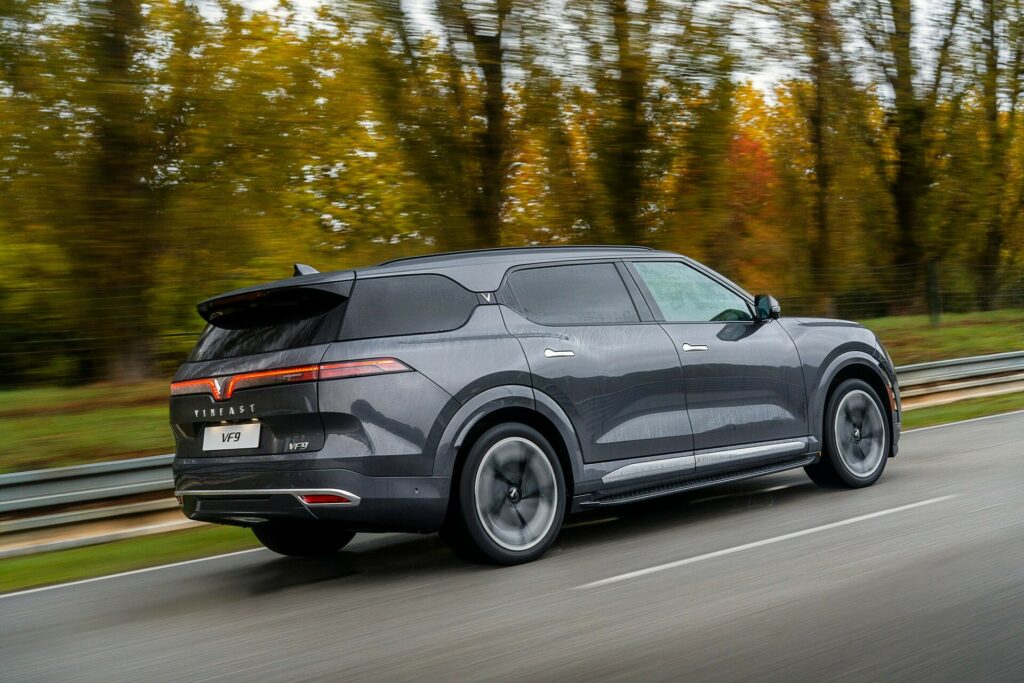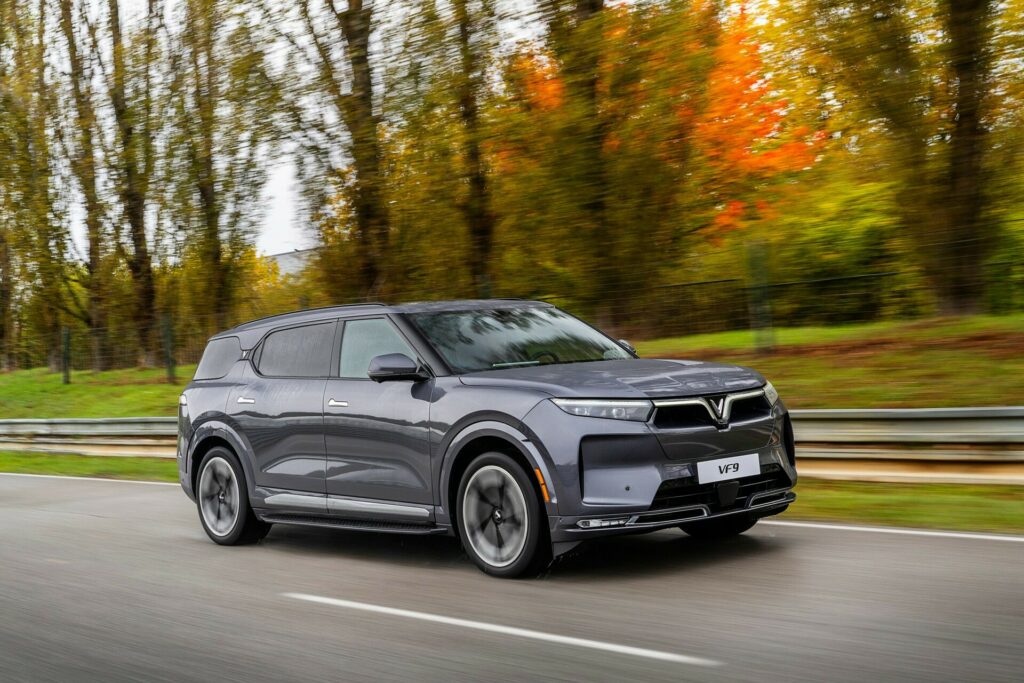- Both versions of the VF 9 are powered by a 123 kWh battery pack and two electric motors.
- The cheapest VF 9 model will set back customers $71,000.
- Unfortunately, the VF 9 is not eligible for the $7,500 federal EV tax credit.
VinFast has slashed U.S. pricing for the VF 9, just days before deliveries start later this month. Depending on the variant, the VF 9 now costs as much as $16,000 less than previously promised, which is excellent news for prospective buyers and should help the struggling brand secure more sales.
Two versions of the VF 9 are available: the Eco and the Plus. The base model will now start at $71,000, including a $1,200 destination and handling fee. That’s well down on the initial $83,000 starting price announced in August last year. At the time, deliveries were to begin in the fourth quarter of 2023, but numerous delays pushed the original date to this month.
Read: VinFast Plans To Have Hundreds Of Sales Points In The U.S. Next Year
The VF 9 Plus was originally planned to start at $91,000. Not anymore. The Vietnamese carmaker’s updated configurator reveals prices start at $75,000 including $1,200 in destination. This represents a $16,000 saving. Will these price cuts help the VF 9 sell better than the VF 8?
On paper, the VF 9 seems quite compelling, although the same could be said about the VF 8, and we know how that turned out. Both VF 9 versions are powered by a 123 kWh battery pack driving a pair of electric motors with 402 hp and 457 lb-ft (620 Nm) of torque. This is enough power to send the SUV to 62 mph (100 km/h) in roughly 6.5 seconds. The battery pack – while not the quickest to charge on the market – can be topped up from 10-70% in 35 minutes.

VinFast says the Eco can travel 330 miles on a charge, while the Plus is good for 291 miles. Part of this drop in range can be attributed to the 20-inch wheels of the Eco model, while the Plus has bigger 21-inch shoes (with an option to upgrade to 22 inches if you’re feeling fancy).
A key rival to the VF9 is the Tesla Model X. Unlike the VinFast, it is eligible for the $7,500 federal EV tax credit, slashing its $79,990 starting price to just over $70,000 for the entry-level All-Wheel Drive variant. That model can hit 60 mph in 3.8 seconds and travel 335 miles between charges.




